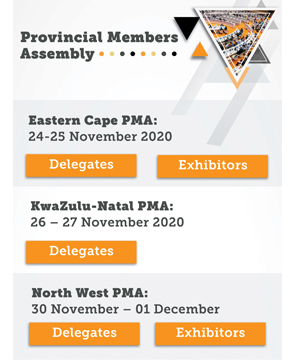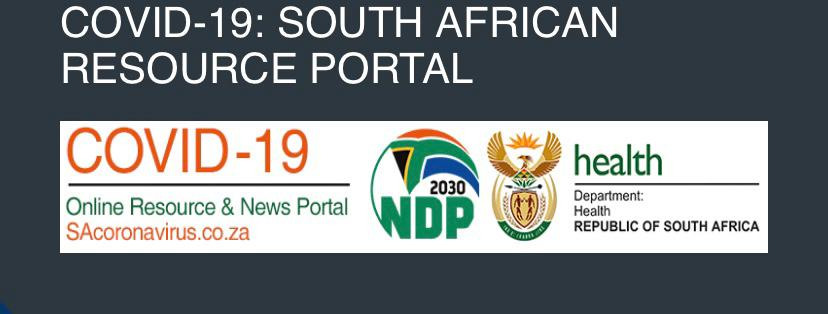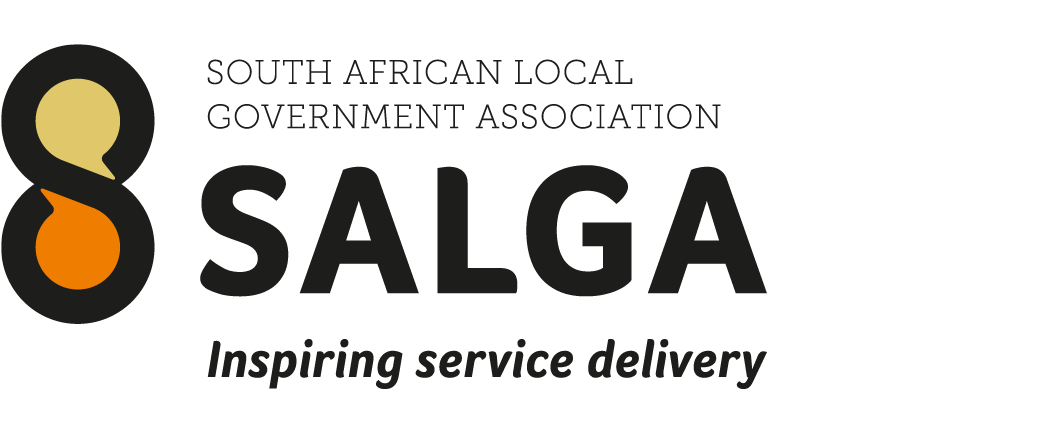
 |
 |
 |
 |
||||
 |
 |
 |
 |
 |
SALGA NEWS |
Upcoming Events |
 |
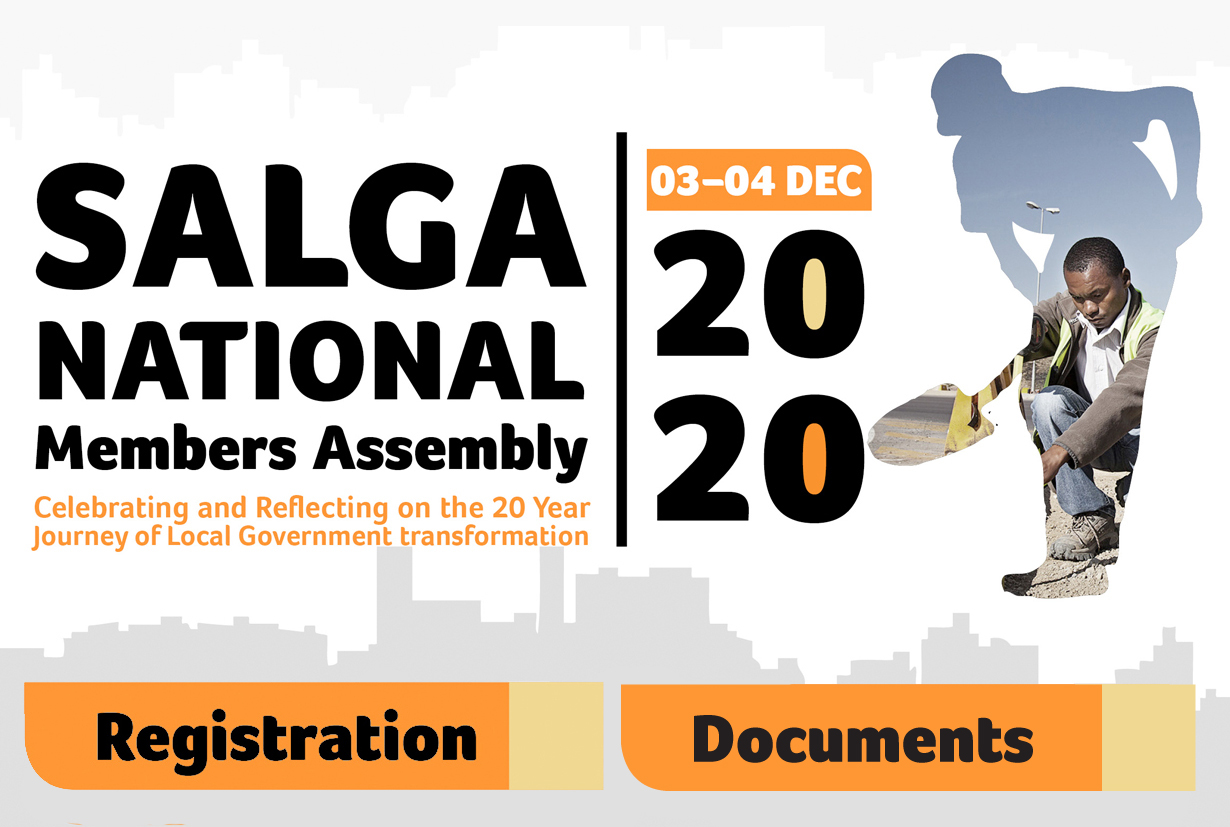
|
|

|
|

|
|
Annual Report |
 |
Quick Links |
 |
Municipalities |
 |
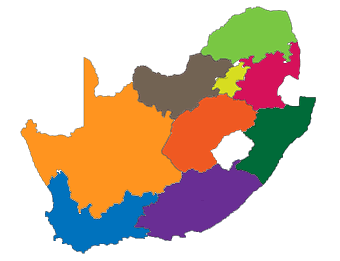
|
|
Social Media |
 |
Follow Us on Social Media
|
|
South African Local Government Association Spatial Transformation Barometer
Posted: 31 March 2021
 |
Municipalities are best placed to drive spatial transformation. It is therefore essential that capacity for this is built. This entails internal capacity comprising skills at the technical and political levels, internal systems and processes. It is equally critical to build the overall co-operative governance system which brings other role players outside of the municipality such as provincial and national governments, State Owned Entities, private companies, and civil society.
“SALGA is of the view that municipalities are best placed to facilitate the transformation of space through the various instruments that are available at their disposal and those that the sector continues to advocate for.
A benchmarking and peer learning session, which took place on a virtual platform on 25 March 2021 brought together policy makers and public and private sector spatial practitioners to provide insights on the theme of spatial transformation in post-apartheid South Africa. It aimed to promote the exchange of information, experiences and spatial transformation best practices.
South African municipalities were also given a platform to articulate the strategic initiatives they had in place to address spatial transformation in their specific localities.
The objectives of the session were as follows:
- To contribute to the continuous development of indicators for effective monitoring of spatial transformation in our cities & towns
- Assessing the progress of municipalities in spatial transformation aimed at inclusivity and economic progress
- Exchanging knowledge and tools amongst peers for effective spatial planning and socio-economic transformation in our cities and towns.
SALGA Spatial and Economic Transformation Barometer
The SALGA Spatial Transformation Barometer is a tool to help South African municipalities to monitor, evaluate and effect spatial transformation in their cities and towns.
Research on spatial transformation highlights that despite the range of legislation and instruments introduced since the 1994 democratic dispensation, the legacy of apartheid spatial development remains.
The Spatial Transformation Barometer must capacitate authorities across all spheres of government in their efforts to address the inherited spatial fragmentation of their cities.
This is done by developing and disseminating a user-friendly transformation index for South African municipalities, that aims to:
- Assist municipalities to reflect on progress (and non-progress) in transforming South African settlements and enable them to project future trends and proactively plan for interventions.
- Prior and ongoing work on spatial transformation that has been developed by other partners and organisations.
- Empower municipalities, sector departments and the general public with empirical evidence to evaluate the impact of government programmes.
- Serve as a basis for discussions in IGR and decision-making structures and as a reference point for public policy development and review.
Cities Support Programme (CSP)
The Cities Support Programme (CSP) based at the National Treasury promotes and supports spatial transformation in large South African cities in pursuit of overcoming their current fragmented, exclusive, and low-density forms into more compact and integrated places.
The CSP realises that for anything to happen at city level, if we want to see any kind of outcome there, it also needs the rest of government to support it and it also requires the financial system to be geared towards achieving that objective
It is within this context that the CSP tries to bring together the cities, various parts of government and making sure that the finances are geared in a way that generate desired transformation outcomes. It is therefore important to create an enabling intergovernmental fiscal system and policy environment to support city-led transformation.
Measurement tools to gauge the impact of municipal investments on the transformation of space in cities
The University of the Free State’s (UFS) Department of Urban and Regional Planning highlights how the monitoring of urban spatial development could be better executed through the usage of several alternative methods:
- Use of Surveyor General (SG) data to monitor creation of new cadastral units- Every new property is registered with the SG office; the adjacent image shows how this can be used to monitor growth. The advantage of this approach is that it tells us where development is going to happen before the development is built. For this to work fully, sectional title unit data would need to be added to create a comprehensive picture of all new cadastral units.
- Building Plan Data - StatsSA already collects data on approved plans and completed buildings for 110 municipalities in South Africa. If this data collection process is refined, municipalities could be requested to provide this data based on districts within the municipality.
- Night Data - This is another approach based on remote sensing but focusing on images of the earth at night. Night data allows for rapid identification of urban activity. It also allows for specific changes to be noted for example the impact of electrification.
Profiling of Municipal Spatial Transformation Initiatives:
Over twenty municipalities Participated in the Spatial Barometer Monitoring and knowledge exchange session where they shared their respective experiences on transforming space, the economy and improved the lives of citizens. These include:
# |
Municipality |
Type |
Province |
1 |
Sedibeng |
District |
Gauteng |
2 |
Central Karoo |
District |
Western Cape |
3 |
Ngaka Modiri Molema |
District |
North West |
4 |
Lejweleputswa |
District |
Free State |
5 |
Thaba Chweu |
Local |
Mpumalanga |
6 |
Moretele |
Local |
North West |
7 |
Midvaal |
Local |
Gauteng |
8 |
Emfuleni |
Local |
Gauteng |
9 |
Knysna |
Local |
Western Cape |
10 |
Theewaterskloof |
Local |
Western Cape |
11 |
Mangaung |
Metro |
Free State |
12 |
Bushburgridge |
Local |
Mpumalanga |
13 |
Matsikama |
Local |
Western Cape |
14 |
Ethekwinin |
Metro |
KZN |
15 |
Umvoti |
Local |
KZN |
16 |
Joe Gqabi |
District |
Eastern Cape |
17 |
Mtubatuba |
Local |
KZN |
18 |
Ekurhuleni |
Metro |
Gauteng |
19 |
Rustenburg |
Local |
North West |
20 |
City of Cape Town |
Metro |
Western Cape |
21 |
Metsimaholo |
Local |
Free State |
22 |
Overstrand |
District |
Western Cape |
Highlights have been extracted for a few selected participating municipalities as follows:
Sedibeng District Municipality
The district municipality profiled some of the initiatives that its locals have undertaken. It reflected particularly on the spatial vision and development priorities of the Emfuleni, Lesedi and Midvaal local municipalities.
In the Midvaal Local Municipality, the Gauteng Highlands, an integrated human settlement project costing R100 billion, is estimated to create 40 000 (direct and indirect) new job opportunities.
The Lesedi Local Municipality has Lesedi Bio-gas, a R31.8 billion biomass (waste energy project) that is estimated to create 69 000 (direct and indirect) new job opportunities.
Sedibeng district residents will also benefit from the Sedibeng Regional Sewerage Scheme, a R855 million sewer upgrade project.
Emfuleni Local Municipality has benefited from the Mega Housing Projects, which aims to achieve the radical transformation of human settlements and spatial planning throughout the province’s five development corridors
Central Karoo District Municipality
The Hydroponics, Agri- Parks Programme and Small Farmer development programme were some of the projects that have been initiated to unlock the economic potential of the municipality and transform its spatial patterns and create new sustainable cities.
Thaba Chweu Local Municipality
A housing delivery project that has so far begun to construct 400 out of a targeted 550 housing units for poor people close to places of opportunity was identified. An electrification project that has so far installed 4500 of out a targeted 17 000 split smart meters under the Duman Substation contract was also highlighted.
Moreletele Local Municipality
Key projects in the areas of water, Water, sanitation, roads, infrastructure and electricity were identified. The projects aim to transform the space and economy of Moreletele Local Municipality.
Some of the intervention programmes identified to affect spatial transformation in the municipality include the formalisation of areas not under traditional authorities, outdoor advertising and signage and communication of infrastructure by laws, Town Planning by laws and Land Use management by law.
Busbuckridge Local Municipality
Various projects aimed at promoting sustainable growth and development, including the reintegration of towns and settlements and encouraging the establishment of viable communities were identified.
Among them was the Mavijan, Dwarsloop & Shatale Precinct Plan Concept. It’s proposed projects for implementation include the rezoning of sites in Dwarsloop to intensify the node by allowing other economic activities in support of the CBD.
In addition to the existing economic activities in the CBD, it is proposed that a one stop government complex, multi modal transport facility and a new shopping mall will be built.
Maztikama Local Municipality
Priority interventions in the areas of spatial restructuring, economic development and job creation, service and infrastructure upgrading and financial viability improvement among others were identified. Some of these included:
- The successful implementation of an updated spatial development framework.
- Delivery of a Capital Expenditure Framework
- Development of the marine economy
- Strengthening and developing local businesses
- Developing local skills
- Developing local infrastructure
- Strengthening the agriculture value chain
Umvoti Local Municipality
Some of the municipalities key intervention initiatives in the area of spatial transformation include the upgrading of the Kranskop Taxi Rank located in ward 5. A water and sanitation programme.
Roads in the areas of Shayamoya, Emuseni, Notha and Mashingizela have been upgraded. Blading and gravelling has been completed and drainage will be done in Phase 2 of the project.
Joe Gqabi District Municipality
Some of the municipality’s high impact projects include:
- The profiling of Tiffendal - 50km’s surfaced road to increase the number of tourist
- Revitalising the Gariep Dam and part resort to boost economy of Venterstad and Oviston
- Aliwal logistic park to utilise Aliwal North as a gateway to receiving and distribution of goods
- Ugie agro-industrial park – revitalisation of Ugie
- Development of Bluegums /Herscheal corridor
- Upgrading and surfacing of Maclear streets at a R90 million
- Ugie and bus and Taxi rank at a cost of R22 million
Matubatuba Local Municipality
Some of the key projects and interventions in the area of spatial transformation in the municipality include:
- The formalisation of informal activities; business regulation; upgrade of public realm; maintenance of precinct and packaging of Catalytic Project and strategic road closures.
- The consolidation of a library and municipal complex. The establishment of Tourist HUB and the relocation of some council activities to Core CBD. Strategic road closures.
- Residential densification and integration with CBD
- Packaging of sites for SMMEs; Agrizone, Business Incubators and Waste Park.
Ekurhuleni Metropolitan Municipality
Ekurhuleni Metro has been instrumental in ensuring spatial transformation through creative innovation and futuristic planning interventions as summarized in the diagrams below.



